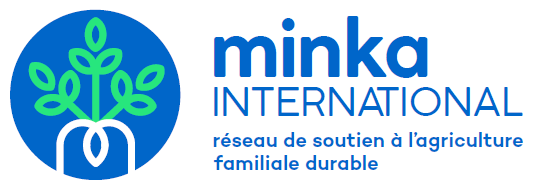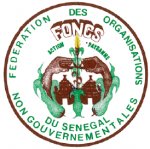WHAT IS FONGS?
The Federation of Non-Governmental Organisations of Senegal is a Senegalese NGO created in 1976 and gathering 28 federations, themselves grouping together more than 3000 village groups wishing to constitute a strong and credible peasant movement, capable of defending the interests of rural communities and of constituting a force of proposal.
WHAT DOES FONGS DO?
FONGS develops economic services for family farms: seed multiplication and supply, processing of agricultural products, marketing of agricultural products and rural financing. The NGO builds and runs a system for monitoring family farms and supports the improvement of their productivity. FONGS also maintains a comprehensive training system for farmers. FONGS contributes to the construction of an economic and social fabric that improves living and working conditions in rural areas.
AND MORE CONCRETELY?
FONGS mobilises 31 member associations and, through them, more than 3,000 village groups representing nearly 120,000 members. The organisation has set up 5 local agricultural support committees (CLAAP) in 5 departments. The NGO is carrying out several partnership actions: installation of 6 agro-ecological market gardens in women’s groups in Mbour, support to120 organic farmers in Diourbel and support to 150 family farms in processing local cereals. FONGS has created a marketing service for seeds produced by member associations, which has, for example, enabled the circulation of nearly 200,000 tonnes of groundnuts.
WHERE DOES FONGS OPERATE?
In Senegal, throughout the country.
WHAT IS THE SITUATION IN SENEGAL?
In Senegal, 72% of the population lives from agriculture and the vast majority of this population is made up of small family farms. These farms receive very little support from the state for the development of their agricultural activities. Senegal has been marked by a disengagement of the state in the management of the groundnut sector, notably through privatisation. Also, many agricultural workers were not paid by other operators. The region of Fatick, in the west of the country, is chronically food insecure and is unable to produce enough food to ensure its autonomy. This low agricultural productivity has increased Senegal’s dependence on food imports. Women are the most affected by poverty because of the high gender inequality and the low literacy rate of adult women (19%) compared to men (51%).
Site web : http://www.fongs.sn/
Siège : Senegal
Pays d'action : In Senegal, throughout the country.
Actions : Improve the control of space and the renewal of their natural resource base by family farms

